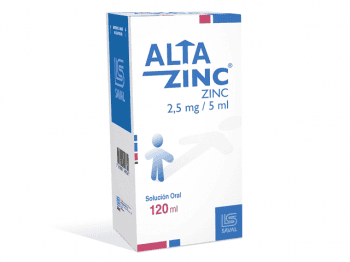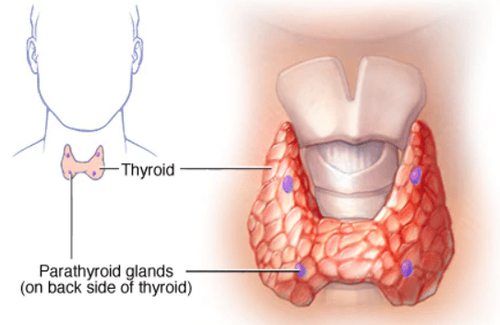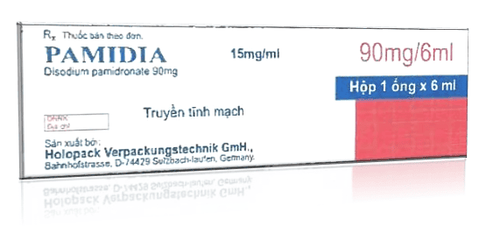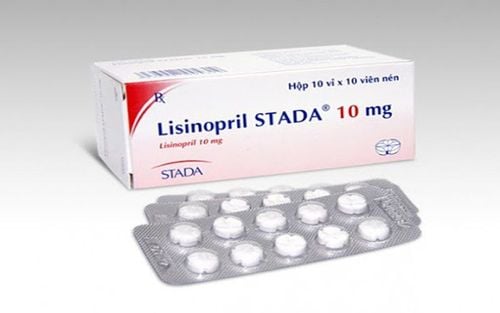This is an automatically translated article.
The article was professionally consulted with Doctor Cardiologist - Department of Medical Examination & Internal Medicine - Vinmec Hai Phong International General Hospital.
Hypercalcemia is a condition in which blood calcium exceeds the normal threshold due to many causes such as hyperparathyroidism, vitamin D poisoning, cancer... In general, elevated blood calcium is a dangerous condition that can lead to serious health problems. symptoms such as muscle weakness, confusion, and even coma.
1. What is hypercalcemia?
Hypercalcemia is a condition in which blood calcium levels are higher than normal with the normal range of 2.1-2.6 mmol/L. When blood calcium levels increase too much, it can weaken bones, cause kidney stones and interfere with the functioning of the heart and brain. Common causes of hypercalcemia include:
Hyperparathyroidism: This is the most common cause of hypercalcemia, usually due to thyroid nodules or enlargement of one or more parathyroid glands Cancer This is also the cause of many cases of hypercalcemia, especially in patients who have reached the stage of bone metastases. Tuberculosis, granulomatous tumors are also the cause of high blood levels of vitamin D, which stimulates the digestive system to increase calcium absorption. Patients with limited mobility, lying in bed or in a wheelchair are also prone to hypercalcemia because the part of the bone that is not subject to gravity gradually releases less calcium into the blood. Severe dehydration is also a factor in mild hypercalcemia People taking vitamin D or calcium supplements excessively Side effects of medications like lithium (which treats bipolar disorder) make the body irritable release parathyroid hormone.
2. Is hypercalcemia dangerous?
Is hypercalcemia dangerous? In mild cases of hypercalcemia, many patients have no symptoms at all. However, if it increases a lot, the symptoms can be very dangerous such as:
Bones and muscles become weak, aching, fatigued Hypercalcemia causes nausea, vomiting, upset stomach and constipation . The kidneys work harder when the amount of calcium in the blood increases, causing dehydration and frequent urination. Patients may experience arrhythmias, palpitations, and other cardiovascular problems. Increased blood calcium levels also make patients more prone to fatigue, lethargy or confusion, even depression.
3. How to treat high blood calcium?
Mild cases of hypercalcemia may only need to be monitored for bone and kidney progression under the guidance of a specialist. When the level of hypercalcemia has manifested into dangerous symptoms, it can be indicated with the following drugs:
Bisphosphonate (intravenous): commonly used to reduce calcium levels in the treatment of hypercalcemia in patients with hypercalcemia. cancer patient. However, there is a side effect of increasing the risk of femoral fractures or osteonecrosis of the jaw. Calcimimetics (Cinacalcet): This is a drug that can mimic calcium in the blood, thereby helping to regulate the activity of the parathyroid gland. Calcitonin: Helps control calcium levels in the blood but has a side effect of making patients feel nauseous. Prednisone: A steroid drug that is relatively effective in cases of hypercalcemia due to increased vitamin D. Denosumab: Used in cases of cancer patients with symptoms of hypercalcemia who have been treated with Bisphosphonate but have not responded. Loop diuretics (Furosemide) and intravenous solutions: Usually applied to patients with high blood calcium levels who need emergency care to lower calcium levels quickly to avoid damage to the blood vessels. nervous and cardiovascular systems. Is hypercalcemia dangerous? The answer is yes. Because this condition can lead to symptoms such as muscle weakness, confusion, even coma. Therefore, when there are signs of hypercalcemia, patients should soon go to medical centers for examination and treatment.
Please dial HOTLINE for more information or register for an appointment HERE. Download MyVinmec app to make appointments faster and to manage your bookings easily.













